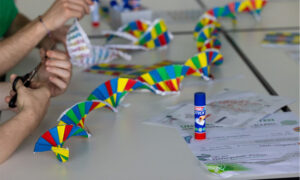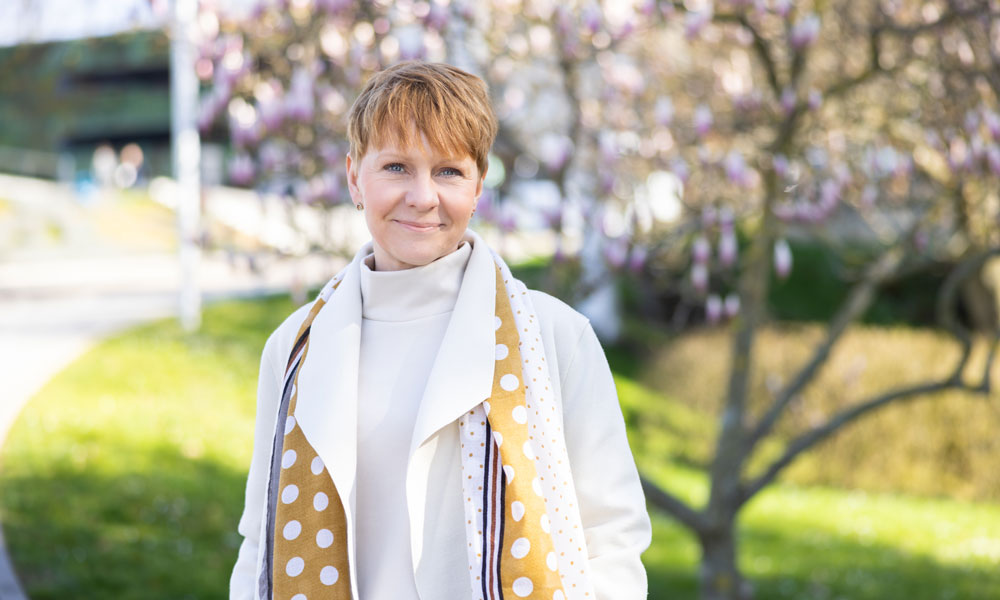
Read the latest Issue
Therese Welander talks about her inspiration, and supporting science by solving problems and overcoming challenges

Therese Welander is Head of Heidelberg Operations and Administration. She is responsible for administrative support and non-scientific service functions at EMBL Heidelberg, including Facility Management, Transportation & Reception, Food Services, ISG Hotel & Guesthouses, as well as the Kinderhaus.
In this interview, Therese talks about her role at EMBL, her biggest challenges, where she finds inspiration to solve problems, and why she is passionate about trail running.
I’m very excited about working in a science organisation that is in operation. It was a big change for me after 14 years in a research centre under construction. I was used to talking about the science that was going to be done one day and, instead, here at EMBL, we can talk about the science we are doing and its impact on society today.
I enjoy being part of a team that enables great science without being a scientist myself, and I am especially happy to work with the members of the Operations teams, who show levels of commitment, knowledge, and service-mindedness that I don’t think I have experienced anywhere else.
I’m also excited about the projects we are currently working on. I work closely with the COO team on the development of the operating model for the Heidelberg Administration and together with Stefanie Kandels and Oliver Hendrich, we form the Heidelberg coordination team, whose aim is to bring users and service providers closer together.
We are here to enable science allowing the scientists to focus on what they do best. We do this by providing a place where people want to be, where facilities for excellent science are provided, and where processes support the work.
I think that an important part of my role is to understand the requirements and manage the expectations of our users and at the same time, find a balance between the needs of the organisation and the resources we have available.
To be successful in bridging the worlds of science and administration, I believe in strong stakeholder engagement, communication and, above all, good collaboration. It is the people that matter. With collaboration across teams and functions and a spirit of being in it together, you can overcome (almost) anything.
I like being outdoors in the forest, either hiking with my family or running. My big passion is trail running and Heidelberg with its surroundings offers excellent, new, and challenging opportunities for someone like me.
I have had the good fortune to have had managers who believed in me and who challenged me to take on large first-time, one-off projects that did not come with a manual but often with a tight time-schedule. I enjoy moving between strategy and operations to get things done and learned that you just have to work with what you have got and not dwell on what is missing.
It depends on the issue. I often go back to nature when I need to think or when I have a need to find new ways to address a problem. On a long trail run, without time-pressure, it’s somehow easier to see new perspectives or different ways of structuring things.
I buy a lot of books for my children, so if you have a kid between the ages of 10-13 years, I would have some great tips for you! I realise that I very seldom read just for pleasure nowadays; however, I’ve just started reading a recent edition of the Selfish Gene, which is a gift from a former colleague of mine.
You should only become a manager when you are more interested in making others grow.
Learn more about Administration and Operations.
Looking for past print editions of EMBLetc.? Browse our archive, going back 20 years.
EMBLetc. archive